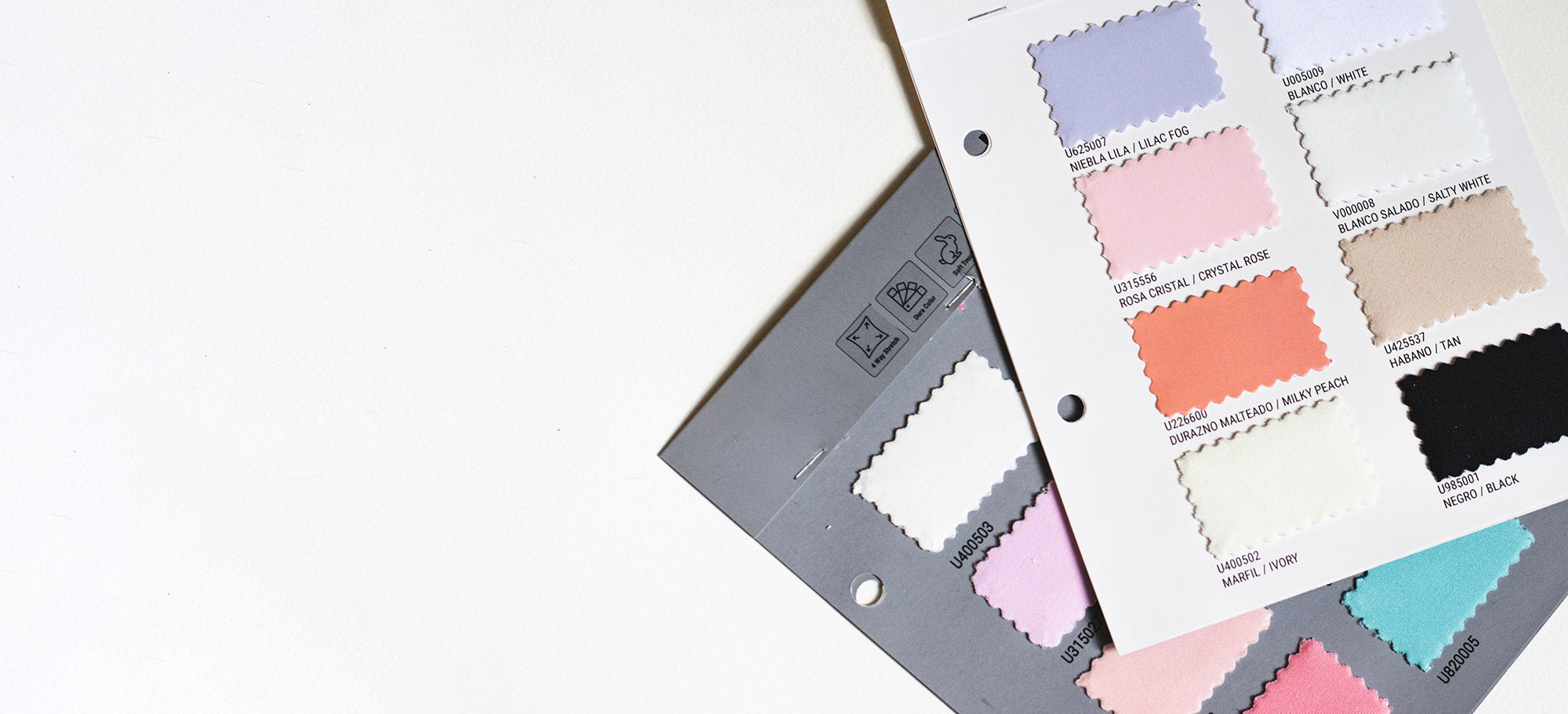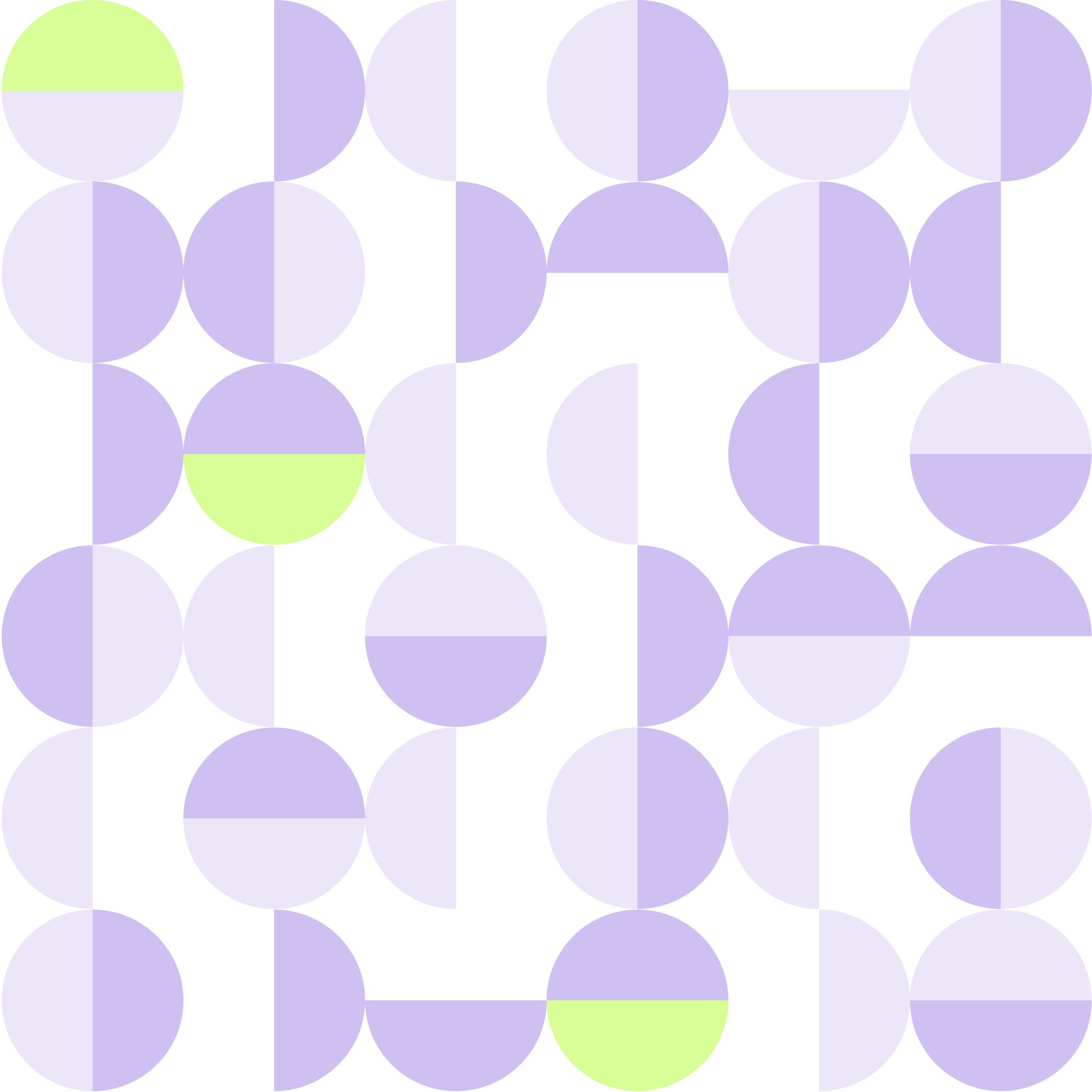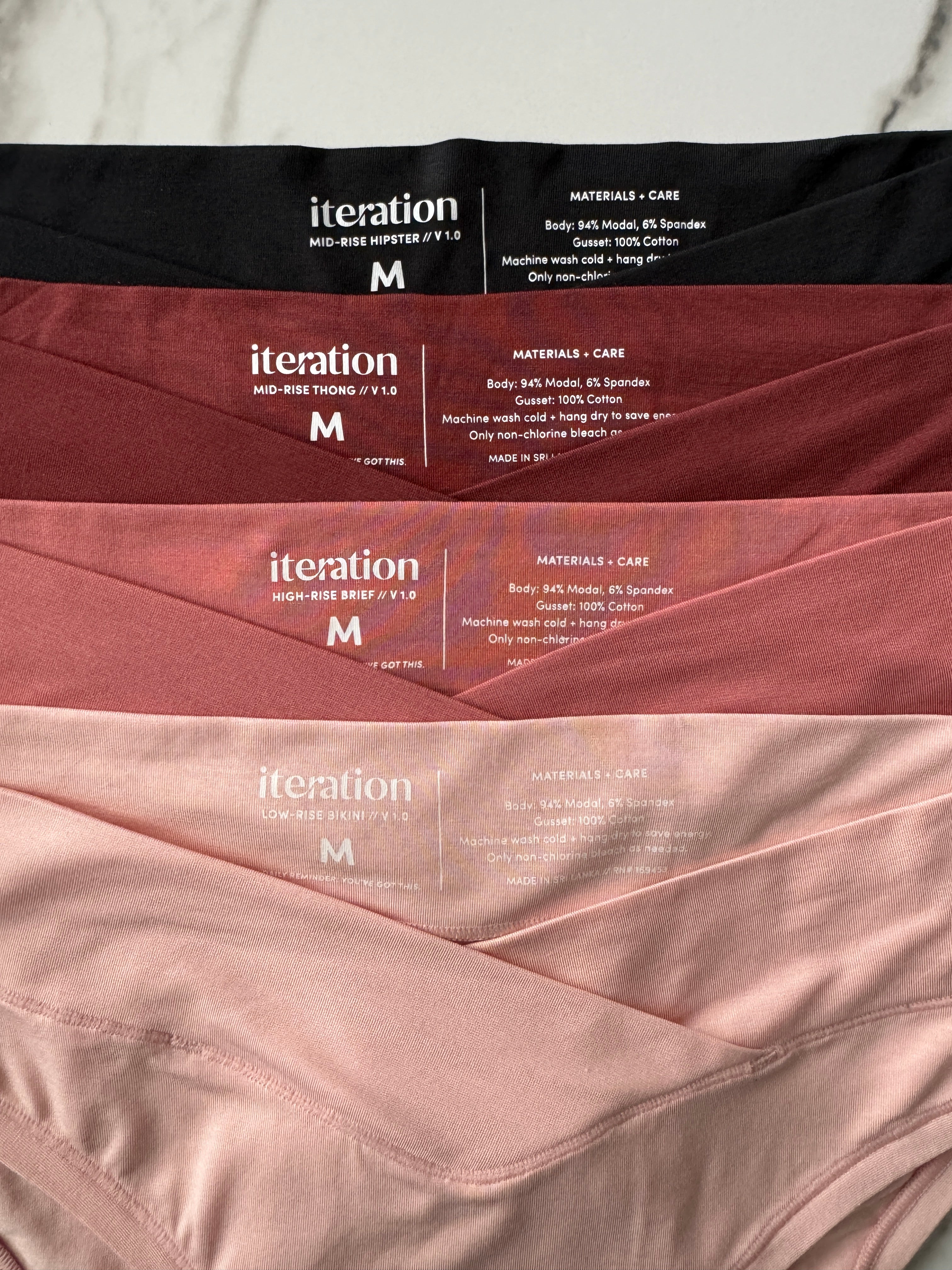
OUR Base Fabric: TENCEL™ Modal
Modal is an eco-friendly fabric known for its extreme softness and breathability, and it comes from natural cellulosic fibers found in trees. Our primary fabric is a soft, luxurious modal spandex blend, with 94% TENCEL™ Modal sourced from Lenzing and 6% spandex. This perfect mix ensures a stretchy fit that moves with you while emphasizing sustainability and skin-friendly comfort.
What is TENCEL™ Modal?
TENCEL™ Modal isn’t just any regular modal. TENCEL™ Modal is produced by Lenzing, a company renowned for its commitment to environmental responsibility. It takes all of its production processes VERY seriously, so Lenzing’s TENCEL™ Modal is even more environmentally friendly than regular modal.

How is TENCEL™ Modal Made?
Lenzing’s TENCEL™ Modal is derived from the pulp of beech trees, specifically beech trees grown in FSC (Forest Stewardship Council) certified forests that are sustainably maintained under strict environmental, social, and economic standards.
Lenzing uses an advanced, eco-friendly process to convert the beech wood pulp into cellulosic fibers. This method is a "closed-loop" process, where more than 99% of the water and solvents* are recycled and reused, minimizing waste and reducing environmental impact.
*Solvents are substances used to dissolve, suspend, or extract other materials, possibly chemically changing either the solvent or the other materials. Commonly used in manufacturing processes, including textile production, solvents can help in applying dyes, cleaning fabrics, and creating finishes on garments.
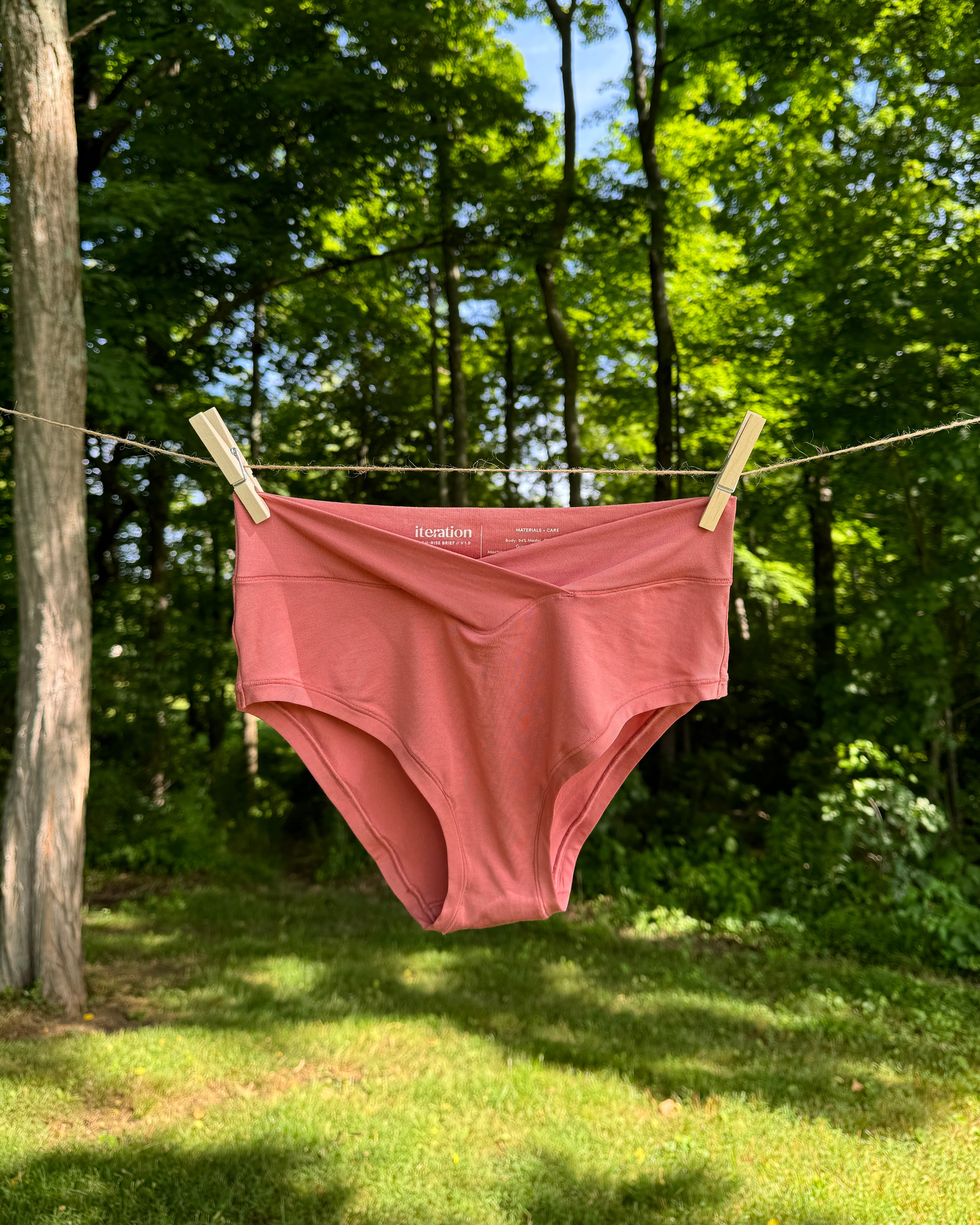
Why Choose TENCEL™ Modal?
Choosing TENCEL™ Modal means supporting a cycle of sustainability. By opting for products made from this material, you contribute to the use of natural renewable resources and limit plastics in your fabrics to promote a cleaner, greener future. Plus, you get a fabric that is incredibly soft, breathable, and gentle on the skin, enhancing both comfort and durability.
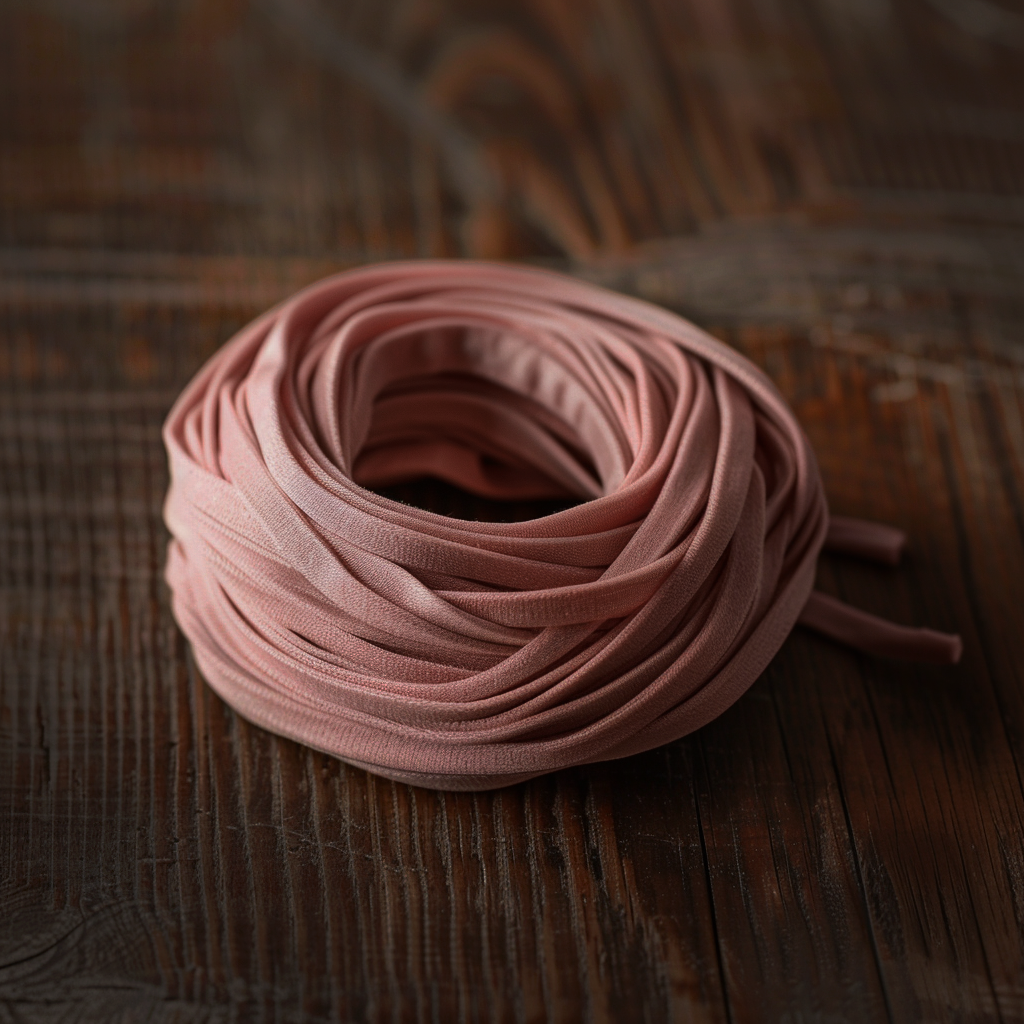
Elastics
Our elastics aren’t just any elastics.
They’re partially made of specialty fibers that pack ALOT of punch. Unlike their more common counterpart, spandex or elastane, these specialty stretch fibers feature moisture-wicking and cooling properties. Due to the way they’re processed, they are thinner (for a smoother look), while also being stronger. That means they require less force to be stretched and have better compression properties (think no bulging or digging), which means you get a flexible fit that truly feels like a second skin.
Traditional spandex and elastane are produced using a dry-spun method which requires lots of solvents, and they can only be re-used or repurposed by dissolving in more chemicals. Our elastomeric fibers use no solvents and lower temperatures for a cleaner manufacturing process, and they only need to be re-melted to make them recyclable for future use.
-

Hidden Supportive Mesh
Currently, our supportive inner mesh is crafted from 87% nylon and 13% spandex. With plans to shift towards bio-based or recycled versions of these materials as we grow, we aim to maintain the strength and durability you rely on, ensuring our products are as sustainable as they are supportive.
-

Hardware
Every piece of hardware, including our sliders, rings, and j-hooks, is crafted from zinc alloy. This material is not only recyclable but also boasts properties like rust and corrosion resistance, ensuring durability and strength. The plating process is eco-friendly and long-lasting.
-

Hook + EyES
We designed our hook + eye for comfort, made with nylon spandex fabric and a plush 2mm foam to prevent digging into your skin. Created to include 4 adjustment settings, these hook + eyes offering additional flexibility to tighten your bra over time and extend its useful life. We're exploring bio-based and recycled fabrication options for these components to further our commitment to sustainability.
-
Home Laundry Wash Tests
Our team has been eagerly washing and wearing samples for many months. We have to say, our wash test undies are our favorites to grab, so they’ve been put through a lot of spin cycles to make sure they hold up to the test of time.
-
Abrasion and Pilling Tests
Our fabrics have been tested to withstand everyday activities with minimal visible wear. We conducted 2 standardized tests to measure the fabric's resistance to abrasion and pilling. We put many fabrics through the wringer to find the right one that didn’t pill. We used the Martindale Abrasion Tester Method* and the ASTM D3512 random tumble pilling test**.
*The Martindale test subjects fabric to thousands of cycles of rubbing.
**The ASTM D3512 means fabric is placed in a tumble box lined with abrasive material for 30 minutes.
-
Fit and Comfort Assessment
For the initial 5 post-wash cycles, every garment is thoroughly evaluated for changes in fit and comfort. This includes reviewing for any shrinkage, stretching, or alterations in the fabric's hand feel and texture. It's essential that our garments not only last but also continue to fit and feel great wear after wear.


